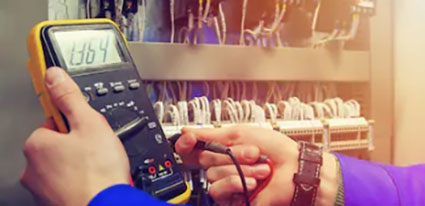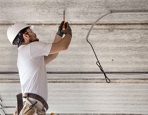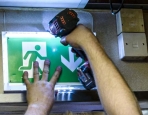Do you want to keep your friends and family safe, prevent your expensive appliances from short-circuiting, and avoid expensive medical bills?
With enough electricity flowing through your home to kill you, it’s absolutely essential to have an electrical safety check.
But on top of safety, you also ensure your electrical appliances work correctly, electricity bills are kept to a minimum, and more.
Here are some reasons why you need an electrical safety check:
#1. Electrical Safety Checks Save Lives
The number one reason why electrical safety checks are essential is for the safety of the people handling equipment or living in a building that uses electricity.
Electrical hazards can cause death, electrical shock, or other injuries caused directly or indirectly by electricity. One example is when an individual directly or indirectly gets in contact with a conductive component of an electrical. This can even occur to parts that were previously not energised, which are now faulty. This is why it’s important for a professional to conduct this check.
Another danger is arcing, which is an electrical discharge that travels through the air and can electrocute you. Paired with high voltage currents, defects in electrical systems can be extremely dangerous and affect your entire building. In addition to electrocution, this can result in electrical fires and other hazards as well.
#2. Electrical Safety Checks are a Legal Requirement
According to the Electrical Safety Act (1988), Electrical safety checks are supposed to be carried out by a licensed electrician.
The electrician assesses the conditions of all electrical systems within the home or business and issues a Certificate of Electrical Safety. The certificate is issued if the technician is satisfied that the system meets safety standards.
Furthermore, the Victorian Occupational Health and Safety Act (2004) obligates an employer to ensure that the “workplace and plants are safe and without risks to health”. Therefore, being safe from electrical hazards is mandatory.
This includes identifying hazards associated with electrical equipment, assessing the corresponding risks, and implementing measures to mitigate or avert those risks.
Electrical inspections are also required before selling a property or buying a previously occupied property, especially for properties more than 25 years old. If you suspect that a part of an electrical system could be faulty, due diligence requires that you book an electrical safety check.
It is recommended that electrical safety checks are conducted every 3-5 years to ensure that the electrical systems in place are efficient and free of hazards.
#3. Early Identification of Defects in the System
A comprehensive electrical inspection points out three key issues that may cause hazards.
One, the inspection identifies defective electrical work that may be from a low-quality installation by a non-certified electrician or DIY homeowners or that have degraded over time.
Secondly, the inspection informs the property owner if any electrical circuits are overloaded or lack earthing or bonding.
Lastly, the inspection also identifies oversized fuses or breakers that may cause a fire hazard or any potential electric shock risks.



